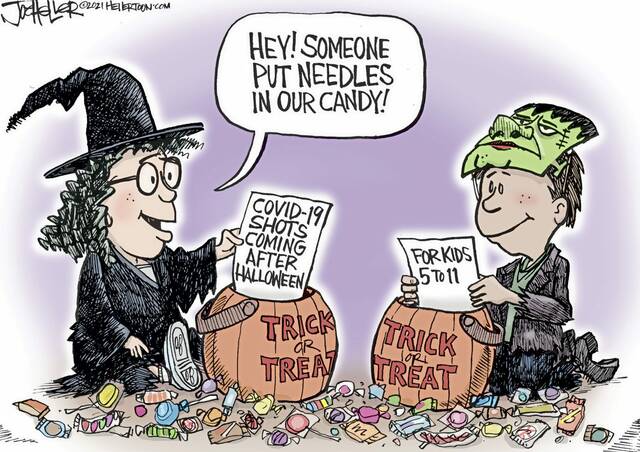Editorial: Kids rely on adults for safety - including vaccines
Getting a kid to take a shot can be more stressful for parents than for the children themselves. Don’t believe it? Watch a mom or dad holding a baby getting an injection at a six-month appointment.
It’s clearly a bullet that the parents would take themselves if they could. It’s also one of those first times a parent realizes that sometimes pain is necessary for growth.
That desire to put oneself between a child and pain is doubtless a reason for much of the vaccine hesitancy that has grown worldwide in recent decades, to the point where the World Health Organization has called it a threat to global health. Parents deciding to reject vaccines has brought back U.S. outbreaks of diseases that had all but disappeared, such as measles and mumps. Pennsylvania has seen cases of both in recent years.
Measles is dangerous. It can cause one in five unvaccinated people who contract it to be hospitalized with conditions such as pneumonia and encephalitis. It can leave survivors deaf or with an intellectual disability and kill as many as three in every 1,000 children it touches. Mumps is less deadly but still has serious consequences, including pancreatitis, meningitis and sterility.
That is why 90.1% of babies receive the MMR — measles, mumps and rubella — vaccine before they are 2. It is why 91.9% of children younger than 17 have had two doses.
Will the covid-19 vaccine be as well accepted?
On Friday, the Food and Drug Administration approved the vaccine for children ages 5 to 11, opening the doors for building immunity in a largely exposed but often underplayed part of the population. Many have pointed to the relatively small numbers of cases and deaths among children as a reason vaccinating children is less important.
Children have been less likely to get sick with covid. That is different from being unable to get sick. They have had fewer deaths. That is not no deaths. And the “less likely” has gotten a little more likely with the delta variant, which has been the most prevalent in Pennsylvania in recent months.
Let’s be clear: The death of one child from a preventable disease is unacceptable, especially as children cannot make the decisions for themselves. They rely on adults to prompt them to do all those things they don’t want to do but have to do, like wear coats when it’s cold, put on a seat belt in the car and, yes, get a vaccine even though no one likes shots.
Remove the ads from your TribLIVE reading experience but still support the journalists who create the content with TribLIVE Ad-Free.

